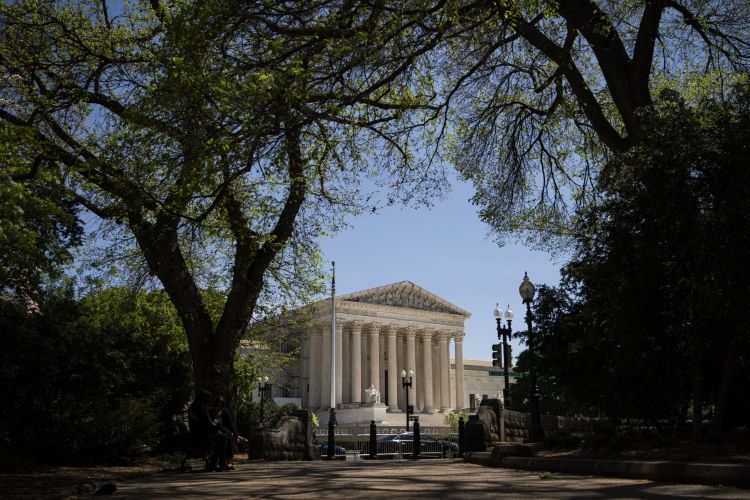U.S. News
Supreme Court to Revisit Emergency Abortion Debate Amid Legal and Medical Complexities
In a pivotal moment for reproductive rights and emergency medical care, the Supreme Court is poised to reexamine the debate surrounding emergency abortions. This comes in the wake of a lawsuit filed by the Biden administration against Idaho’s restrictive abortion law. It reignites contentious discussions about the intersection of state legislation, federal law, and medical ethics.
Dr. Alison Edelman, an esteemed obstetrician in Portland, Oregon, has shed light on the dire consequences of Idaho’s ban on abortion. This is particularly in cases of severe pregnancy complications. She recounts harrowing experiences of pregnant individuals transferred from Idaho to her hospital. They arrive with life-threatening conditions like dangerously high blood pressure. Timely access to abortion could mean the difference between life and death. Such transfers, she explains, often occur because Idaho physicians are unable to perform abortions due to the state’s stringent legislation.
Legal Battles and Ethical Dilemmas
The heart of the matter lies in the interpretation of the Emergency Medical Treatment and Labor Act (EMTALA). This federal law is designed to ensure that individuals receive emergency medical care regardless of their ability to pay. The Biden administration argues that Idaho’s abortion ban violates EMTALA. It fails to provide adequate legal protection for doctors who perform abortions in medical emergencies. However, Idaho contends that the federal law does not explicitly address abortion and thus does not mandate its provision in emergency situations.
According to Barron’s report, this legal battle comes amidst a broader landscape shaped by the Supreme Court’s 2022 decision in Dobbs v. Jackson Women’s Health Organization, which granted states increased authority to regulate abortion. Since then, over a dozen states have enacted near-total bans on abortion. This has prompted widespread concern about access to reproductive healthcare, particularly for marginalized communities.
Shifting Public Opinion and Political Dynamics
David S. Cohen, a prominent law professor at Drexel University, underscores the significance of narratives surrounding pregnancy complications in influencing public opinion and political outcomes. Women in conservative states denied timely abortions due to health risks galvanize support for reproductive rights nationwide. They have also propelled Democrats to electoral victories.
Anticipating a Pivotal Ruling
As the Supreme Court prepares to hear Idaho’s appeal, the nation awaits a pivotal ruling that could shape the future of abortion rights and emergency medical care. The outcome of this case will not only have immediate implications for pregnant individuals in Idaho. It will also set a precedent for states across the country grappling with similar legal and ethical dilemmas. At its core, this case encapsulates the delicate balance between state sovereignty. It also involves federal law and the fundamental right to access safe and timely healthcare.
Receive daily delivery of The WSJ Print Edition to your home or office for a full 52 weeks. This subscription covers Monday through Saturday, ensuring you receive your newspaper every morning. Plus, enjoy uninterrupted WSJ digital access, providing 24/7 availability to our online news platform, featuring the latest daily news, live WSJ TV, engaging audible articles, and access to our extensive news archives.

